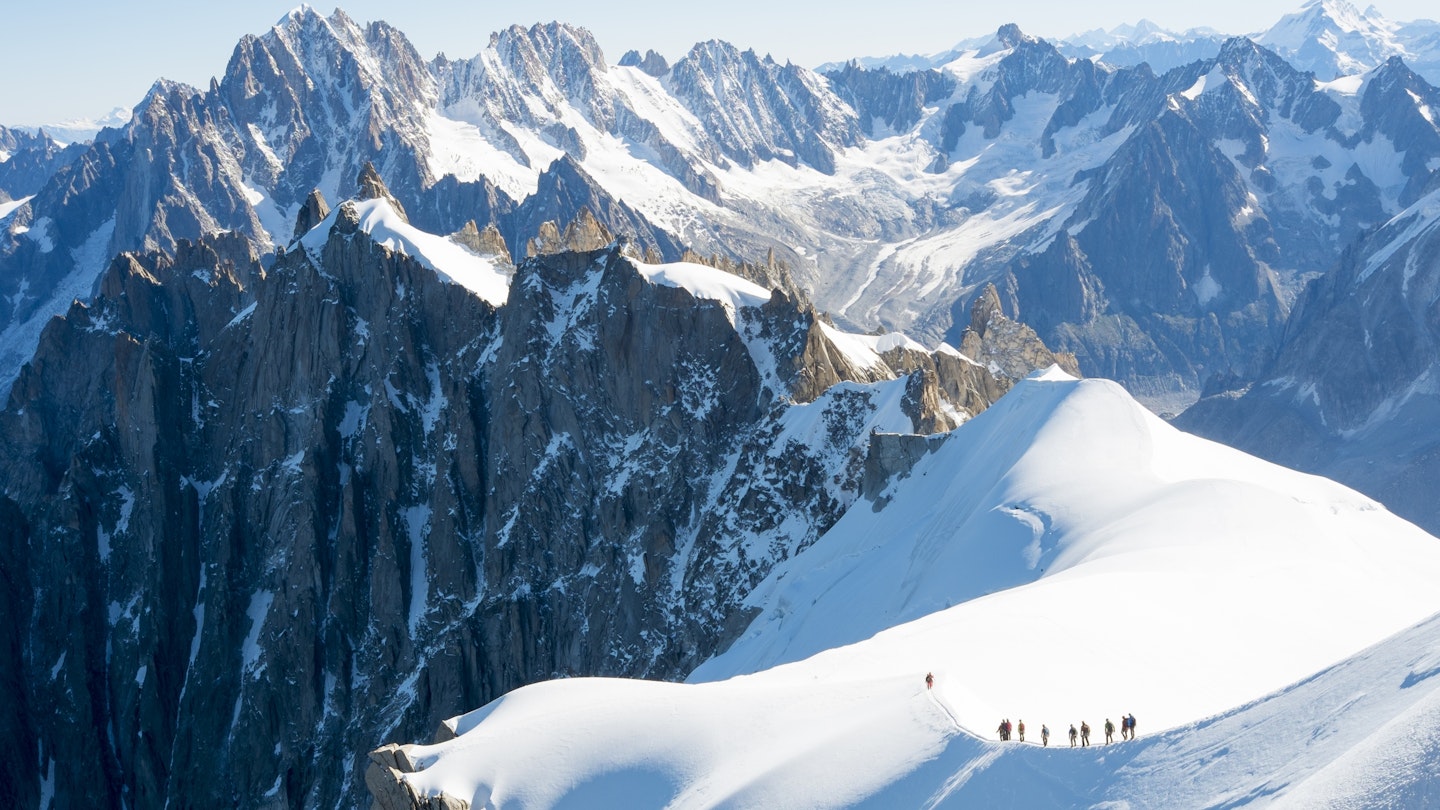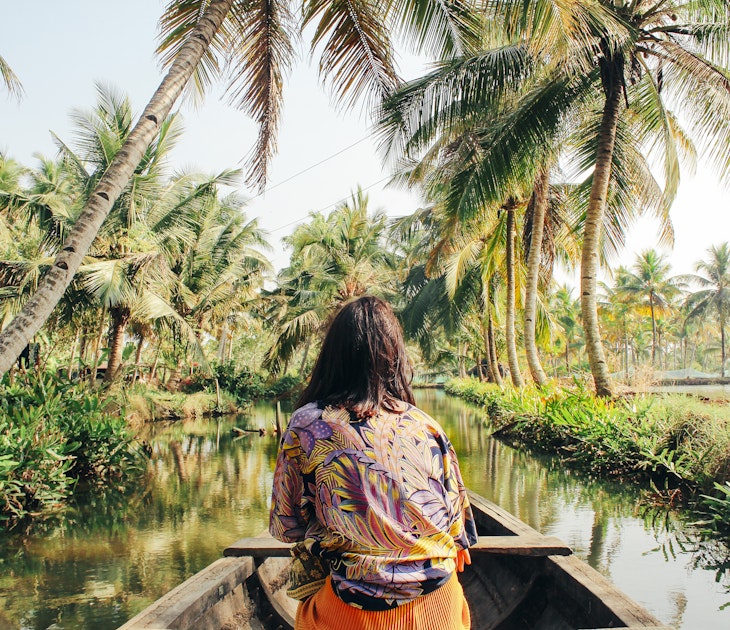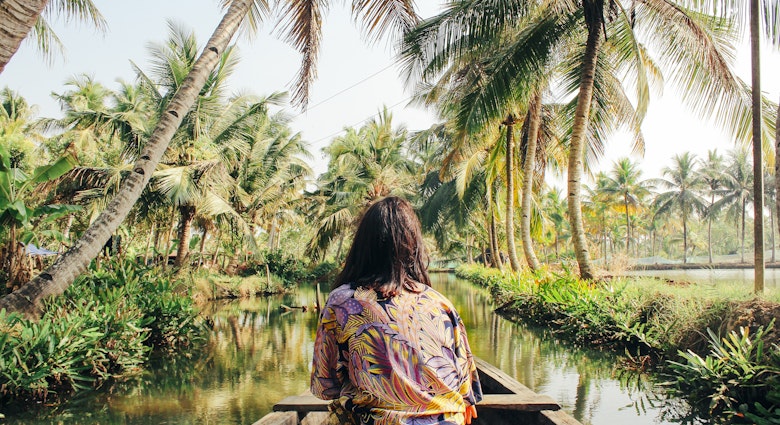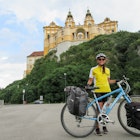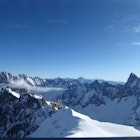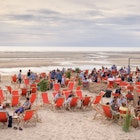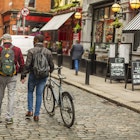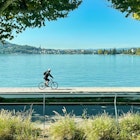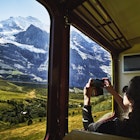On 13 February, French president Emmanuel Macron announced a plan to limit access to Mont Blanc, curbing the number of ascents allowed and introducing a protective zone around the heavily-trafficked tourist favourite.
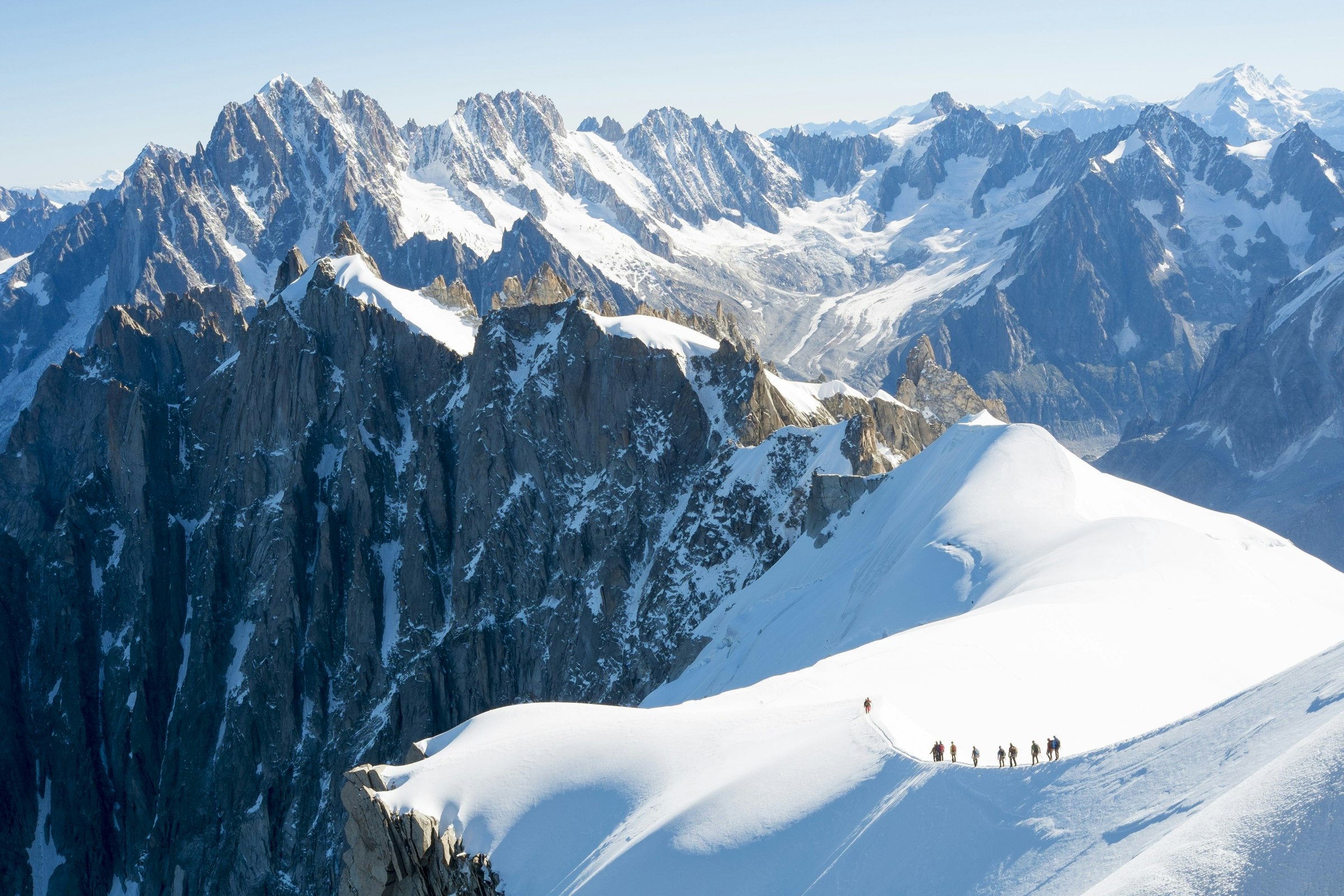
Macron delivered the news during a visit to the Alpine ski town of Chamonix and the country’s biggest glacier, the 4.7-mile (7.5km) Mer de Glace (Sea of Ice), which has experienced drastic shrinkage during the past two decades. In 2013, the Guardian reported that it had lost “more than 65 metres in depth and 300 metres in length since 1996,” and the French Ministry of Ecology tweeted recently that it’s receded 700 metres (almost 2300 feet) in the past 30 years.
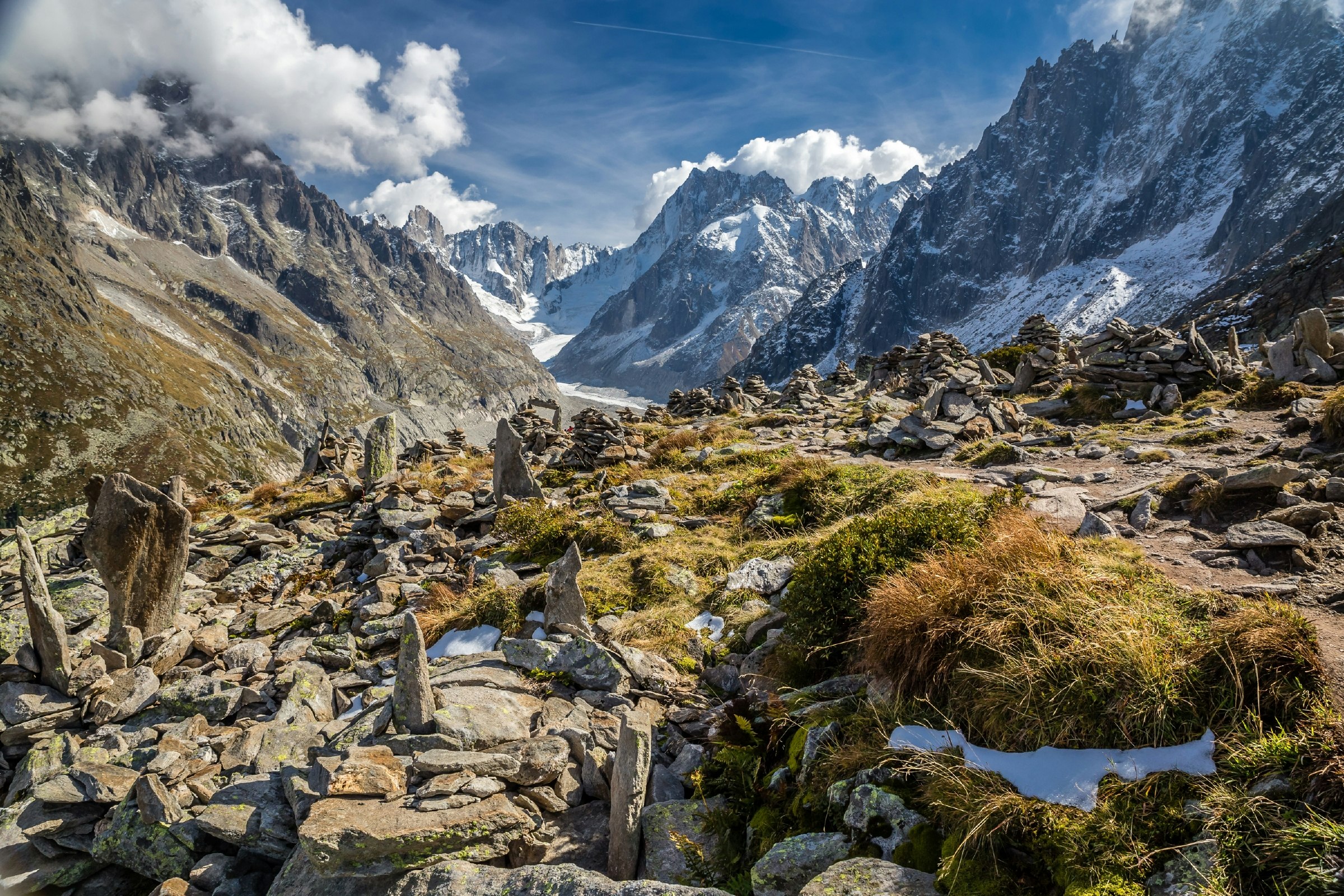
“What we are seeing with the evolution of the glacier is irrefutable proof of global warming and climate change and the toppling of an entire ecosystem,” Macron said in an on-site speech. “A landscape is being deformed before our eyes and species are disappearing quickly. The fight for biodiversity is a fight for our own survival and is inseparable from the fight against global warming.”
Macron’s visit coincided with the launch, the day prior, of the French Office of Biodiversity, a new governmental agency with the mission of monitoring and protecting the country’s environment. “France will create a protected nature reserve around Mont Blanc by the end of the year, with rules about the number of people who can visit the mountain, especially in the summer,” the BBC reports.
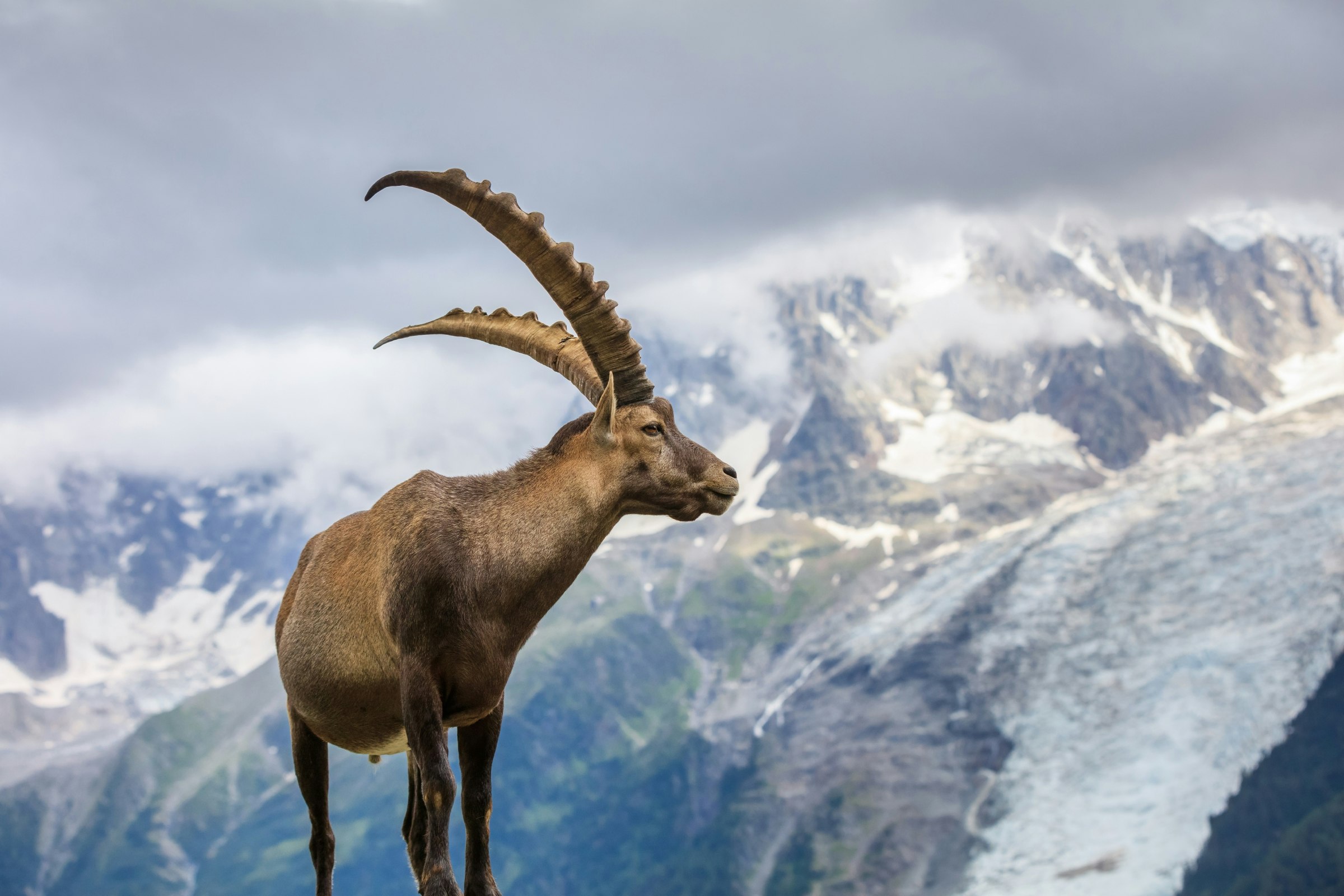
When the new rules go into effect, the Guardian notes that climbers will be required to provide proof that “they have planned their ascent, that they have reserved places at reservations en route and are carrying specified equipment.”
This isn’t the first time France has attempted to put parameters around access to the mountain’s 4810-metre (15,780-foot) summit. In 2018, the government temporarily closed the popular "Royal Route" to any climbers that hadn’t already booked accommodations along the way, due to overcrowding and safety risks, the BBC reported at the time.
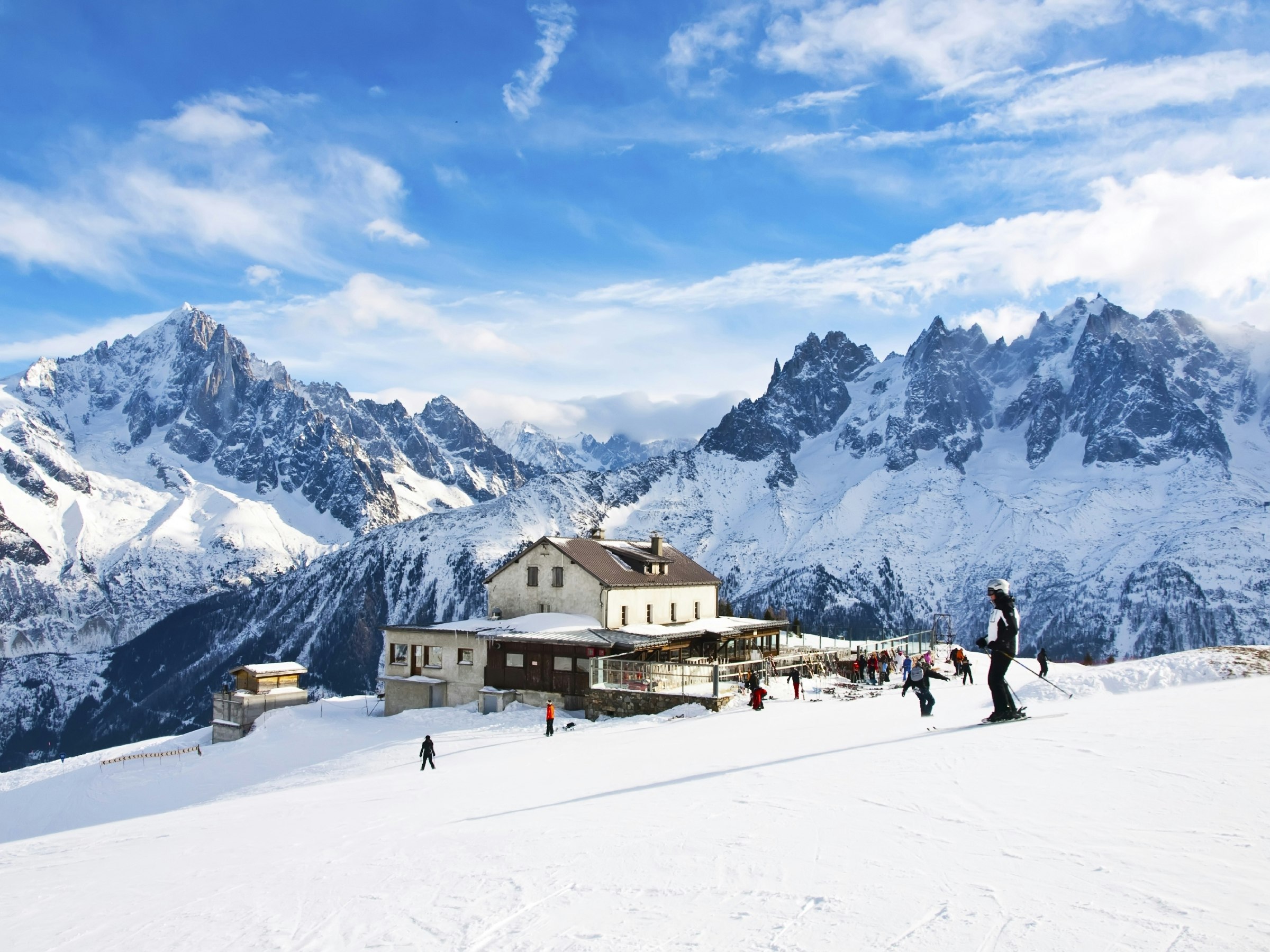
By the Guardian’s count, some 200 to 300 people try to climb Mont Blanc daily, or 30,000 people per year, and they don’t all have the mountain’s health – or their own – in mind. This past June, two Swiss climbers circumvented the big trek altogether, landing a small plane near the summit and starting off for the top on foot before they were apprehended by mountain police.
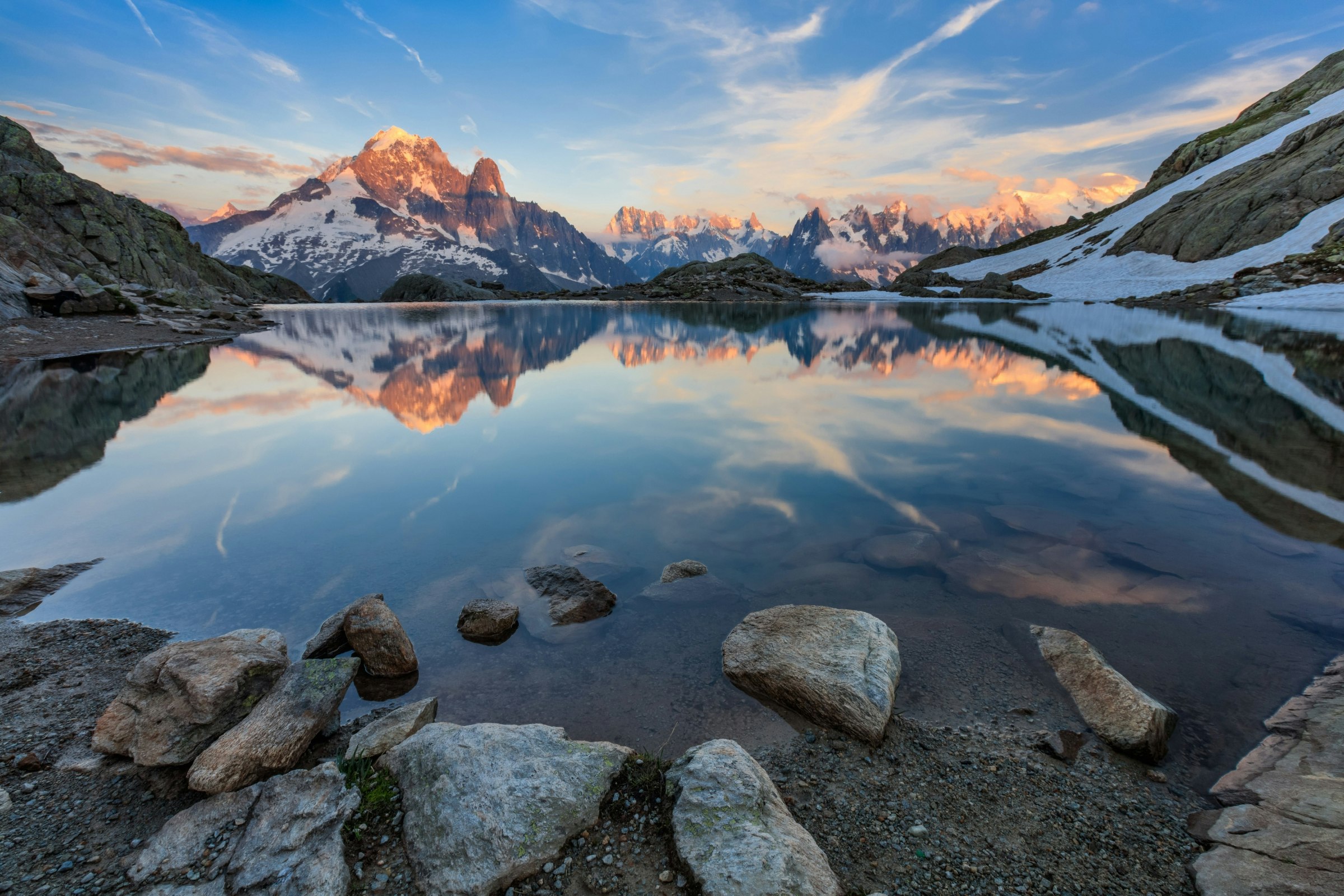
Then in late August, a former British Royal Marine veteran attempted to summit with a rowing machine in tow – a gambit to raise money for veterans’ charities by rowing the height of the mountain at its peak. But due to inclement weather, he was forced to abandon the machine just under 400 metres from the summit, causing a minor uproar and prompting the local mayor to issue an open letter to Macron, asking the president to take action against those who misuse the mountain and damage the environment.
“Today, 99% of people are shocked by what happens on the summit of Mont Blanc,” he wrote, per the Guardian’s translation. “Let us allow people to go on Mont Blanc, but let us set the rules. When you go to someone’s house, you’re not the one who sets the rules. You don’t put your feet on their table. It’s the same here.”

